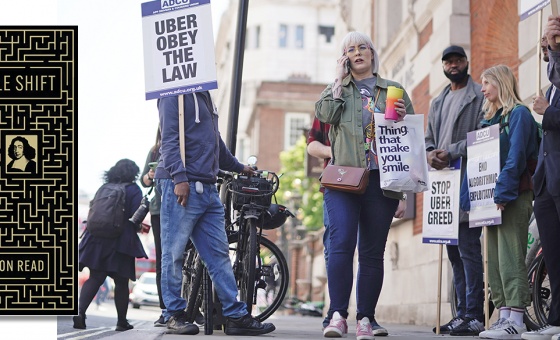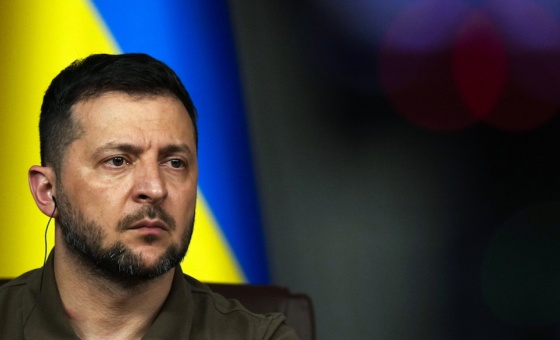This is the last article you can read this month
You can read more article this month
You can read more articles this month
Sorry your limit is up for this month
Reset on:
Please help support the Morning Star by subscribing here
AFTER 16 years of SNP government in Scotland, we have become used to seeing just a few high-profile figures. I feel reasonably confident that few members of the public could name no more than a handful of SNP Scottish ministers.
Nicola Sturgeon has been so dominant as First Minister that others were hardly visible. Polling this week has shown that when the wider electorate was asked how well the two frontrunners to replace Sturgeon — Humza Yousaf and Kate Forbes — had done in their ministerial roles, 40 per cent and 51 per cent respectively said “don’t know.” Thirty-eight per cent thought Yousaf had been “bad” or “very bad” — hardly a ringing endorsement.
Yousaf is described as the continuity candidate. This must mean continuity in lack of vision and poor delivery. His constant exposure to press and TV coverage was not of the positive sort.
It usually meant him giving tortuous explanations as to why the health service is failing to meet any of its targets. Before that, his main role as transport secretary was explaining why trains and ferries were in such a mess.
He is now being challenged on his integrity too, for failing to vote on same-sex marriage by arranging to be absent but claiming to support it. If this is true, it hasn’t helped him win the support of the Scottish Association of Mosques which revealed it would not be endorsing any of the three candidates although it praised Forbes for openly talking about her faith.
Forbes shot to prominence when then-finance minister Derek Mackay had to quit office after a scandal. Forbes took over as the first woman and youngest-ever finance minister just before the budget and was able to deliver a competent budget speech.
She has been absent for the past year on maternity leave which kept her out of the public eye and meant she missed the divisions over the Gender Recognition Reform Bill. Though not in Parliament at the time, she confirmed she would have opposed the legalisation of gay marriage.
But while much of the attention has been on her conservative religious views, her conservative economic agenda has been overlooked.
Forbes was a member of the Sustainable Growth Commission tasked by Nicola Sturgeon to devise an economic policy for an independent Scotland. The Commission’s report put paid to any suggestion that an independent Scottish government led by the SNP would have radical economic policies.
She has reaffirmed that her economic policies would echo Keir Starmer’s “win back business” approach. She said: “For the last four years, we’ve heard the refrain that businesses don’t feel we’re listening and when we listen, we don’t take their concerns seriously. My approach would be, look, you’re ultimately the powerhouse of our economy.” She is also clearly ready to ditch the Green Party to make the most of Scotland’s oil and gas reserves.
The third and even less-known candidate is Ash Regan. While recent attention was on her opposition to the Gender Recognition Reform Bill, her pitch to the wider SNP membership is a more single-minded, fundamentalist approach to independence.
Here she goes much further than the other candidates, arguing for a unilateral move to independence without the need for a Section 30 sanctioned referendum. Instead, she argues that winning Holyrood and Westminster elections with 50 per cent plus one would give the SNP “the best chance of securing the endorsement of the international community for us opening negotiations directly without a referendum. We’d be returning to our roots.”
As of yet, there are no polls of SNP members, but from what we know of them, they would likely mirror the views of SNP voters, who put Forbes ahead in the polls that have taken place. Forbes is also ahead in a poll of the wider electorate.
Some on the left believed that the mass recruitment after the 2014 referendum campaign had changed the makeup of the party. But there was no great shift.
New members have “marginally stronger” views than the longer-established members but make little significant difference. The demographic profile remains mostly male and from the ABC 1 demographic with an average age of 49 — not unlike other political parties. It is still the case that women and working-class voters are less likely to vote SNP.
We have to assume that Sturgeon could foresee the paucity of candidates to replace her when she chose to resign. Professor James Mitchell said: “The weak line-up of candidates speaks volumes. If Scotland was on the verge of independence and the SNP was advancing, then we would expect senior and experienced figures to be queuing up for the chance to lead Scotland.” It is not much of a legacy after such a high-profile time in office.
Where does this leave the left? While there are some mitigations in place, a million people live in poverty in Scotland, including a quarter of a million children.
This, along with the huge differences in life expectancy between the rich and the poor, marks Scotland out as every bit as unequal and unfair as England.
With all of this going on, the SNP has continued to present independence as the only solution. This completely ignores that an SNP-led independent Scotland would be even more vulnerable to international financial pressures than the rest of Britain.
For the past eight years, the Scottish government has acted as if independence was the settled will of the Scottish people. In early February polling put support for independence at 47 per cent — that’s just 2 per cent more than it was in the 2014 referendum. Even at its highest, it was barely more than 50 per cent.
SNP members must sometimes ask themselves where the momentum has gone — and why they have not been able to generate more support. After all, they could not have had a better set of circumstances after nearly 13 years of Tory mismanagement. A similar situation in 1997 saw 74.29 per cent support for a devolved Scottish Parliament.
The constitutional issue is just not moving, it is rather shuffling on the same spot year after year. It is unlikely that a Forbes or Yousaf-led SNP government will change that. On the other hand, Scottish Labour has so far failed to offer a radical alternative.
The recent Scottish Labour conference adopted a policy calling on the party to work with the STUC, trade unions and other civic bodies to strengthen the powers of the Scottish Parliament. This could be a game changer because such a convention could identify the changes needed in Scotland to defend and advance the rights of working people developed in partnership with the trade union movement, currently waging the fiercest fightback against capitalist greed in decades.
Marx said that every class struggle is a political struggle: “If the proletarians and capitalists are waging an economic struggle against each other today, they will be compelled to wage a political struggle tomorrow.”
Scottish Labour must embrace that struggle if it is to defeat the aggressive advance of acquisitive policies and practices promoted by both the Tories and endorsed by the three neoliberal SNP stooges.
Pauline Bryan is the convener of Red Paper Collective and a Labour peer.











